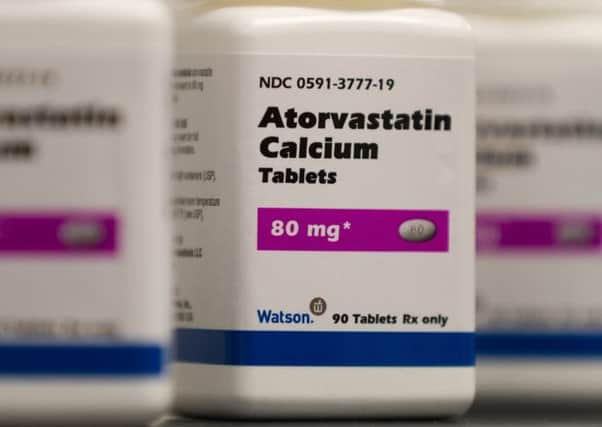Statins ‘may help those with lung conditions’


The drugs, called statins, are taken by large numbers of people at risk of heart problems to reduce cholesterol in the blood.
But a new study by Edinburgh University found that the tablets could also help treat patients with severe coughing caused by the lung disease bronchiectasis.
Advertisement
Hide AdAdvertisement
Hide AdThe findings come after other researchers have also identified potential other uses for statins, which appear to have anti-inflammatory effects in the body.
The inflammatory lung condition bronchiectasis is a disabling disease affecting one in every 1,000 British adults.
It causes a vicious cycle of bacterial infection and inflammation in the lungs and airways and can be life-threatening.
The condition leaves patients with daily symptoms that include chronic coughing, excessive phlegm production and repeated chest infections.
For most patients the causes of bronchiectasis are not known, but it has been linked to serious lung infections in childhood, such as whooping cough or pneumonia which damage the airways.
In efforts to find new treatments for the disease, the team in Edinburgh looked at whether the anti-inflamatory properties of the cholesterol-lowering drugs could work in a small group of patients with bronchiectasis.
While the drugs were not effective for all patients, the researchers found that a daily high dose of statins over six months led to significant improvement in coughing symptoms for 12 out of the 30 people treated in the study.
After six months of taking statins, patients could better tolerate gentle exercise and walk further than they could before treatment.
Advertisement
Hide AdAdvertisement
Hide AdThese patients also had fewer flare-ups of disease and less inflammation in their airways, the researchers found.
Six patients stopped taking the statins before the end of the study because they were experiencing side effects such as headaches. But the researchers, writing in the journal Lancet Respiratory Medicine, said there were no serious side effects from the treatment.
They said the findings suggested that statins could offer an alternative to long-term antibiotic treatment for people with bronchiectasis, which raises patients’ risk of infection from antibiotic resistant strains of bacteria such as MRSA or Clostridium difficile.
Dr Pallavi Mandal, a clinical research fellow who led the study, said: “There are few effective treatments for bronchiectasis so these are encouraging findings.
“Larger studies are now needed to find out whether statins could be useful as a long-term treatment option for patients with this disease.”
The study was funded by the Chief Scientist Office, part of the Scottish Government Health and Social Care Directorates, and the Medical Research Council.
The research is the latest to suggest an extra use for statins. which are cheap to produce and widely regarded as safe.
Just last week another UK study suggested that statins may be useful in treating patients with advanced multiple sclerosis.
Advertisement
Hide AdAdvertisement
Hide AdEarly trial results by University College London scientists, published in The Lancet, showed the pills slowed brain shrinkage in people with MS.
The researchers will now go on to examine whether statins benefit MS patients by slowing progression of the disease and easing their symptoms.
There have also been calls for more patients at lower risk of heart problems to be given statins in efforts to prevent future ill-health.
But this has led to concern among some of mass medication and fears the side-effects may outweigh the benefits in those in low-risk groups.
However, this has been disputed by leading medical academic Professor Sir Rory Collins last week who said articles published in the British Medical Journal saying statins caused harmful side effects and did not reduce mortality were misleading.
SEE ALSO: